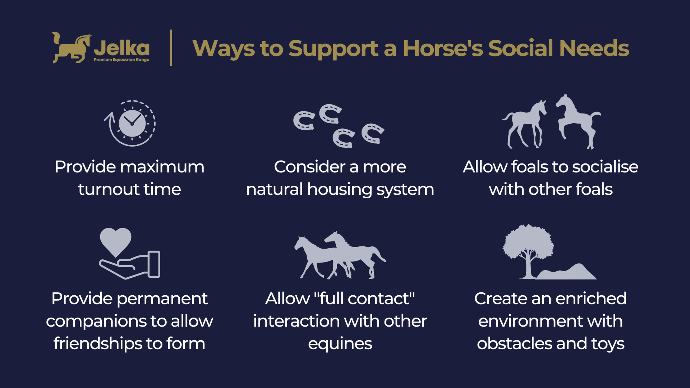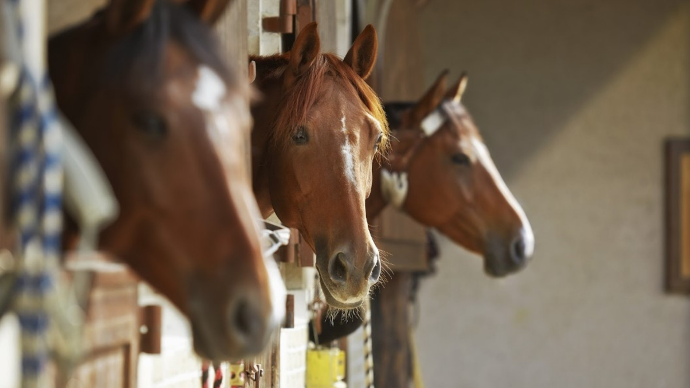Posted: 9th July 2024 | Back to news feed


The Horse’s Natural Environment
Horses are inherently social creatures with a strong herd instinct. In their natural habitat, they rely on the safety and security of the group to survive, so it is understandable that most horses may feel vulnerable when isolated. From birth until the end of their lives, wild horses enjoy a continuous social existence. However, domestic horses often face social restrictions starting around the age of three when training and riding activities commence. This is a critical period as horses are not socially mature until at least six years old.
How can we use modern equine husbandry to promote better social adaptability and improve horses’ relationships with humans?
Modern Equine Husbandry
Despite domestication, the social needs of horses remain unchanged from their wild ancestors. Modern stabling practices, which often involve keeping horses separately, can lead to stress and abnormal behaviours due to the lack of social interaction. Horses naturally form close friendships within their groups, and individual housing is contrary to their nature. Providing opportunities for social interaction, such as turning out bonded horses together, is essential for their psychological well-being. Young foals, in particular, benefit from playing with peers and older equines, which aids in developing social skills and self-confidence.
Social Hierarchy in Herds
Understanding the social order or "pecking order" within a herd is beneficial for managing horses in groups. Factors such as age, size, and length of residency influence hierarchy and the lead horse often claims priority access to resources like food. However, the pecking order is not always linear and can be complex. Introducing new horses can disrupt the hierarchy temporarily and increased aggression if there are space constraints. Nonetheless, this social structure is natural, and even horses lower in the hierarchy play important roles.

Special Considerations for Ex-Racehorses
Racehorses, often confined to stables with limited social interaction during their training, may exhibit stress and aggression when rehomed and integrated into a herd. This behaviour typically results from a lack of prior socialization. Patience and gradual introduction to group settings can help these horses adapt to their new social environments and often with very positive results.
Conclusion
At Jelka, we emphasize the importance of understanding horse behaviour and we believe it is absolutely possible to create equine facilities where horses can engage in herd dynamics throughout their lives. Our solutions are proven to improve horses’ physical health, mental wellness, and efficiency of your business.
To find out more about our ‘social ‘systems’, please visit jelka.co.uk or call us on 01304 273620.
The Equestrian Index newsfeed is compiled from articles submitted by advertising members and expresses the opinions of those members. Watsons Directories Ltd shall not be held liable for any inaccuracies or mis-statements therein.